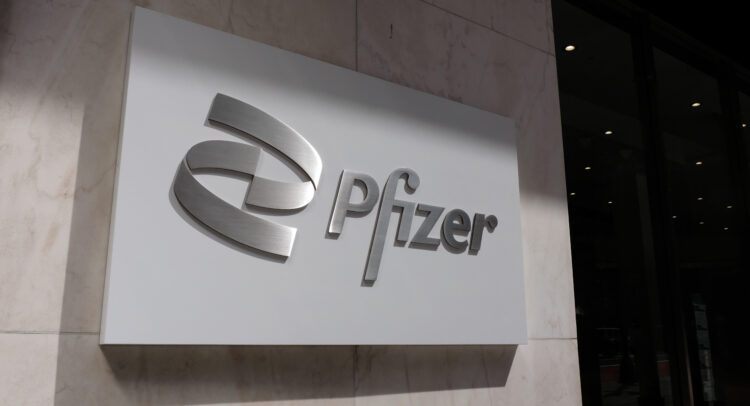It has not been a good few days for healthcare stock Pfizer (NYSE:PFE). One of the latest troubles to hit the stock head-on is over Paxlovid, its antiviral treatment against COVID-19. Turns out it, much like facemasks in 2020, was nowhere near as effective in the real world as hoped. Pfizer slipped just over 1.5% as a result.
Elevate Your Investing Strategy:
- Take advantage of TipRanks Premium at 55% off! Unlock powerful investing tools, advanced data, and expert analyst insights to help you invest with confidence.
The latest observational studies on Paxlovid suggest that it’s not as strong in the real world as the testing data suggested it would be. Based on a study released by JAMA Network Open, high-risk patients taking Paxlovid were 37% less likely to need to be hospitalized or even die as a result. Sounds pretty good…until you consider that the initial studies looked for an effectiveness rate of 89%, not the 37% the real-world studies yielded. However, it’s worth noting that the observational studies were not done using an exclusively unvaccinated population like the original studies were.
That’s not especially good news for Pfizer, and it gets worse from there. We know that Pfizer is already looking for weakness in the COVID-19 market to come, predicting that only 24% of those who are eligible for vaccination will come out and get it. By way of comparison, that’s barely half of what the flu gets. As a result, both Pfizer and its contemporary Moderna (NASDAQ:MRNA) are working to diversify.
What is Pfizer’s Target Price?

Analysts, meanwhile, have some faith. With five Buy ratings and nine Holds, Pfizer stock is considered a Moderate Buy. Further, with an average price target of $46 per share, Pfizer stock offers investors 39.25% upside potential.
















